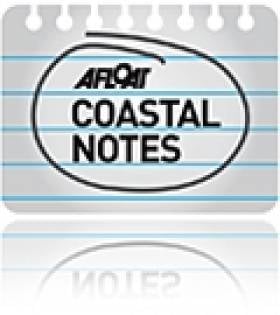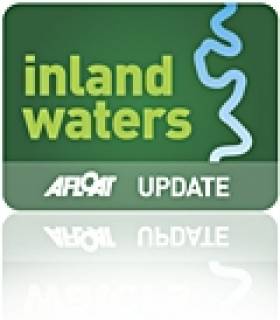Displaying items by tag: Pat Carey T.D
Carey Courts Criticism Over Corrib Pipeline Approval
Controversy has arisen over the decision by outgoing Minister for Energy Pat Carey to grant key consents for the Corrib gas pipeline on the day of the general election.
According to the Irish Times, the Department of Energy said consent to construct the pipeline was issued "as a matter of course" after An Bord Pleanála approved the new pipeline route in January.
But Green Party sources told the paper that a recommendation on the consent application by Shell Ireland had not arrived on the desk of former Energy Minister Eamon Ryan before he left office that month.
Meanwhile, An Taisce is seeking a judicial review of the planning decision, which is believed to breach a number of EU directives.
As previously reported on Afloat.ie, planning for the last 8km stage of the Corrib pipeline - which runs through a special area of conversation - was only approved with 58 conditions related its construction and management.
Labour Party president Michael D Higgins told The Irish Times: “This is not a decision that one would regard as 'clearing one’s desk' as minister, as it has very serious implications."
The Irish Times has more on the story HERE.
Dublin Canal Developments Approved
The Minister for Community, Equality and Gaeltacht Affairs, Pat Carey T.D., today announced the approval of the granting of leases for a number of proposed developments on Dublin's canals on the inland waterways.
The developments include the construction of a cycle bridge across the Royal Canal at Spencer Dock, a boardwalk along the Grand Canal at Leeson Street and a pedestrian/cycle bridge across the Grand Canal at Lynches Lane.
The decision to grant leases to Dublin City Council and South Dublin County Council for the proposed developments was taken at a meeting of the North South Ministerial Council in Armagh this morning. Speaking after the meeting, Minister Carey said the decision to approve the leases had the potential to further transform Dublin's waterways for the benefit of the citizens of Dublin.
Minister Carey said, "Developments like those proposed by Dublin City Council will add to the regeneration of the city and will strengthen the environmental, social and economic fabric of the capital. They will add to the quality of life of all and especially to the quality of life of pedestrians and cyclists."
John Martin, Chief Executive of Waterways Ireland, the cross-border body charged with the all-island promotion and development of waterways is delighted that the Ministers have approved the granting of the leases at the NSMC.
He said "Waterways Ireland is happy to facilitate the development of these waterside amenities in the Dublin Area. We hope to work with all the local authorities on many projects in the future right across the Dublin Region."






























































